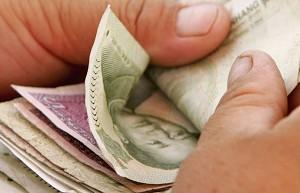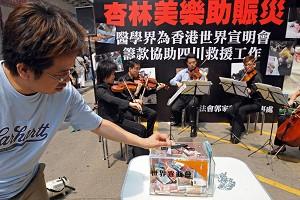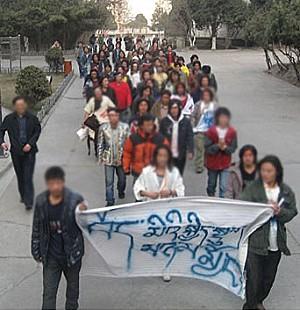China’s official media reported on Monday that according to a recent survey, commercial bribery in China has become a universal way of doing business, and that most of the people surveyed lack confidence in the effectiveness of the Chinese communist regime’s anti-bribery measures. Commentators believe that the worsening amount of graft by government officials is related to the tightened news control and the lack of scrutiny of corrupt officials by the media. However, the Chinese authorities try to avoid the issue of freedom of the press when discussing the bribery problems.
Sixty Percent of the Public Show No Confidence The report showed that nearly 94 percent of the Chinese citizens believe that kick-backs, commissions, gifts, and banquets are common when conducting business in China. Sixty percent of the people surveyed had no confidence in the effectiveness of the anti-bribery measures according to a recent joint survey conducted by the Institute of International Economics in Nankai University and the Department of Cadres’ Editorial Forum of the Chinese Communist Party Central School.
Increasing Commercial Bribery Chinese Premier Wen Jiabao expressed earlier this year that commercial bribery is largely an issue of corrupt government officials. He said, “Commercial bribery is closely related to the abuse of power by the governmental agency and its officials.”
The Chinese Ministry of Public Security has also indicated that the number of investigated commercial bribery cases increases year by year and the investigated cases are only tip of the iceberg.
Mao Yushi, the Board Chairman of Unirule Institute of Economics, pointed to two unique observations in China. One is the massive amount of money involved, often in the range of 10 million to 100 million RMB ($US 1.24 to 12.4 million), which is much more than the recently exposed scandal of Taiwan’s President Chen Shui-Bian’s family. The other is that more senior officials are involved, which demonstrates the problem exists in the ruling party.
“The ruling party undermines law and order”, said Mao Yushi Mao Yushi said, “I believe the fundamental reason is that law and order has been destroyed. By whom? The ruling party. Therefore, more and more high ranking personnel are involved in the bribery and corruption, such as bank presidents, governors, and particularly leading figures of law enforcement agencies, procuratorates, and courts.”
The Chinese Communist Party monopolises all power in China, including the legislative, administrative, and judicial systems. Chinese Communist leaders have openly acknowledged that the ruling party’s survival relies on elimination of the corruption within the party and its officials.
The Official Media Avoids Issue of Press Freedom Mao Yushi said, “Because control of the media has become tighter in recent years, people involved in the corruption do not fear exposure of their scandals as long as they have strong connections with the authorities.”
Mao’s opinion is shared by many other observers not directly controlled by the regime’s Propaganda Department. While the official media is discussing the increased corruption in China, the issues of press freedom and supervision are avoided in every way possible. Instead, officials propose to enhance ideological education to establish a ‘clean’ and impartial image for the government and judiciary systems.
Many observers noted that such propaganda by the regime is deceiving. It is as if to say that the corruption is due to the officials not being educated in the meaning of handling things impartially.



